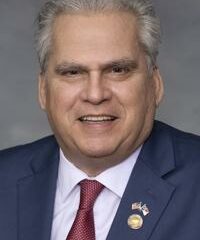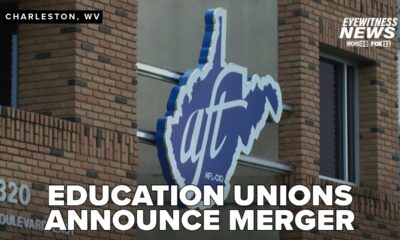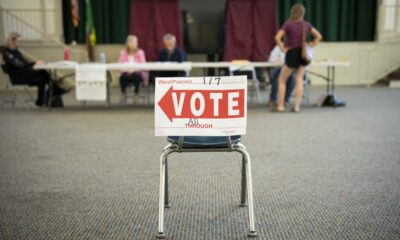westvirginiawatch.com – Amelia Ferrell Knisely – 2025-02-17 19:12:00
Bills protecting foster families’ beliefs on LGBTQ, vaccines meant to recruit more WV foster homes
by Amelia Ferrell Knisely, West Virginia Watch
February 17, 2025
As lawmakers try to help the state’s shortage of foster families, House members are considering a bill that would bar the state from dismissing potential foster families because of their “sincerely held” religious beliefs regarding sexual orientation or gender identity.
Potential foster parents shouldn’t be excluded because of their religious beliefs, the bill sponsor said. Opponents of the measure fear it could put LGBTQ children at risk of being in unsupportive homes or potentially keep them from being placed in a home at all.
Another measure would relax vaccination requirements for families wanting to foster, who are currently required to have their biological children in the home vaccinated in accordance with state policies.
Members of the House Health Committee’s new Human Services Subcommittee, chaired by Del. Adam Burkhammer, R-Lewis, considered the measures on Monday during their first meeting this year.
Burkhammer, a foster parent, said the bills addressed potential barriers to recruiting more foster families in the state.
“The foster family is crucial to a well functioning child welfare system. And we need more of them that are willing to take children across the state,” he said. “There will be plenty more bills around child welfare as we move forward.”
There are more than 6,000 children in state care with a persistent shortage of Child Protective Service workers, foster homes and in-state care options.
Del. Jonathan Pinson, R-Mason, is a foster parent and sponsor of House Bill 2033, which would ban the Department of Human Services from considering prospective foster parents’ beliefs on sexual orientation or gender identity as a condition of whether that individual is eligible to foster or adopt.
“Such beliefs shall not create a per se presumption that any particular placement is contrary to the best interest of the child,” the bill said.
“What we have many examples of throughout the nation are the human services employees asking questions to the foster parent, ‘So even in the instance of babies, would you affirm or would you be okay with some medical procedure or hormone therapy?’” Pinson told committee members.
Research shows LGBTQ youth are overrepresented in the child welfare system for reasons that include LGBTQ youth face higher rates of parental physical abuse, and are more likely to run away from home or be kicked out.
“I worry about kids being placed in homes where we know that they might not be supportive,” said Jack Jarvis, communications director for Fairness West Virginia, a statewide LGBTQ advocacy organization. “I don’t think this bill does anything to protect the kids.”
Del. Anitra Hamilton, D-Monongalia, feared that the bill prioritized the best interest for foster families’ safety more than children and could prevent LGBTQ or transgender youth in the foster care system from being placed in a safe home.
“ … Because we put in a policy that further discriminates against our kids based on their sexual orientation or gender identity and them being able to be adopted by a loving family simply because of where they identify sexually,” she explained.
Pinson said that he felt the bill makes sure that children are placed in the best environment where they can succeed.
He noted his legislation said that DoHS could use their discretion about where to place a child in hopes of finding a comfortable atmosphere.
“We’ve gone to lengths to make sure that it’s not just protecting the foster parents, but also the foster children as well,” he said.
The committee also considered HB 2376, sponsored by Burkhammer, that would exempt foster parents from having to show proof of vaccination for biological children and individuals living in the home, which is currently required. The measure would not give foster parents the ability to bypass vaccination requirements for foster children in their care.
Burkhammer said the measure was another way to increase the state’s number of potential of foster families
Under a new House Committee process, the subcommittee is expected to consider the bills again and make any potential changes later this week.
Members of the House Judiciary Committee have also begun reviewing foster-care related legislation that seeks to address issues in the judicial system, including a glaring lack of attorneys who represent children involved in abuse and neglect cases.
YOU MAKE OUR WORK POSSIBLE.
SUPPORT
West Virginia Watch is part of States Newsroom, a nonprofit news network supported by grants and a coalition of donors as a 501c(3) public charity. West Virginia Watch maintains editorial independence. Contact Editor Leann Ray for questions: info@westvirginiawatch.com.
The post Bills protecting foster families’ beliefs on LGBTQ, vaccines meant to recruit more WV foster homes appeared first on westvirginiawatch.com










































